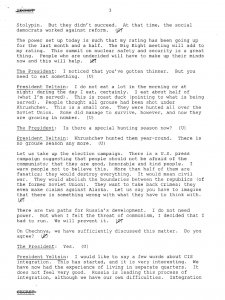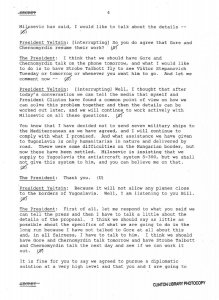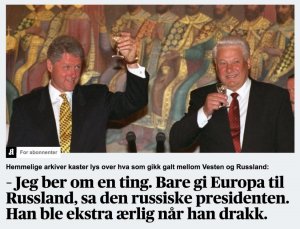Historietime som samtidsopplysning. Om Blair, Giddens, tredje vei, avpolitiseringen av politikken osv. og «eksplosive» konsekvenser.
https://www.theguardian.com/politic...-consensus-how-conflict-came-back-to-politics
Yet by the early 00s it was also becoming clear that there was something unsatisfying about the third way. “‘Beyond left and right’ had sounded rather grand and ambitious,” says Jacques, “but it was not. It was a retreat. Its notion of the political was extremely narrow.” Without ideological categories, without a critique of the economic and social status quo, without defined enemies – apart from what Blair hazily referred to as “the forces of conservatism” – New Labour’s politics was thin. Government became mainly about competence, and measuring that competence. In 2000, the Blair administration had 600 official “priorities”. Even Blair himself occasionally criticised his government’s bitty quality. “Sometimes it can seem as if it were a mere technocratic exercise,” he said in a 2002 speech, “well or less well managed, but with no overriding moral purpose.”
The inadequacies of western political life at the third way’s zenith became a focus for political scientists. In a 2006 essay, Ruling the Void, Peter Mair described a “hollowing” of politics: voters had lost their democratic function, he argued, because so many issues had been removed from public discussion by New Labour and its foreign counterparts. In 2000, Colin Crouch warned that western countries were approaching a state of “post-democracy”, with elections simply shuffling the same governing elite. But the most vivid condemnation of third way politics came from the melodramatic German conservative philosopher Peter Sloterdijk in 2006. “What is called for [by governments] now are resilient bores,” he wrote. “What is expected of them is to sit around big tables to come up with the world formula of compromise.” Politics of this sort was “the most formless of monsters … whatever it touches becomes, just like itself, docile, characterless”.
[…]
“The most fundamental flaw of New Labour was accepting neoliberalism,” says Giddens now. “They didn’t do what they could have done to restrict it. The contrast is striking with Blair’s interventionism in military matters.” David Miliband, despite being a more orthodox New Labour figure than his brother, partly agrees: “We didn’t appreciate that globalisation was too unequal, too unstable … Deeper things were happening to the economy than we realised.”
Finlayson argues that the third way’s blind spots about the downsides of capitalism were not an accident, but a choice – a sign of rightwing assumptions behind its “beyond left and right” rhetoric. “We shouldn’t let them get away with claiming they were non-ideological.” Ideology was certainly evident in the Blairites’ party management, which relentlessly marginalised the Labour left. One of the paradoxes – you could say hypocrisies – of New Labour was that in order to create a more consensual politics it first had to dominate those who didn’t believe in it.
[…]
But she (Moffe) went on, “Democracy that is in good working order – with conflict, but where people accept the existence of their adversaries – is not easy to re-establish.” She looked up from her black coffee. “I’m not that optimistic.”











